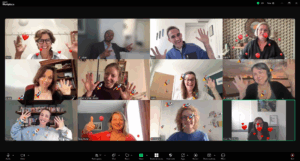The Ultimate Guide: The Dos and Don’ts During Workplace Conflict
Developing constructive communication styles within a team can prevent two of an employer’s worst enemies:
- Poor performance, and
- High employee turnover.
This is the ultimate guide to the dos and don’ts during workplace conflict, and how to avoid communicating using toxic behaviours.
Toxicity can be identified by the presence of some of the following communication styles, otherwise known as “The Four Horsemen of the Apocalypse.” You can read more about these communication styles in one of our previous blogs: The Four Major Influences on Team Productivity.
Workplace Conflict:Toxic Behaviours
Contempt: hostile humour, sarcasm, personal attacks, disrespect, demeaning gossip
Examples:
Team member: “You criticise my work all the time and it upsets me.”
Contemptuous team member: “Well, what a surprise. It’s not like you’re oversensitive…”
Contemptuous team member: “I heard Luke is having a disciplinary because of what he said to Karen. I think he should get fired… What do you think?”
Stonewalling: disengagement, passivity, not open to influence
Examples:
Team member:“Why hasn’t the project been completed?”
Stonewalling team member:**shrugs, looks elsewhere and distracts self with another task.**
Team member:“Why have you missed your deadline?”
Stonewalling team member:**Walks out**
Team member:“You don’t seem very engaged at work this week. A lot of imporatant details seem to have been missed on your project. Is everything okay?
Stonewalling team member:“I’m confused and don’t understand what you’re talking about”
Defensiveness: refusal to take responsibility, victimisation
Examples:
Team member: “We both agreed last week that the meeting was critical so why didn’t you show up?”
Defensive team member: “Nobody understands how much is my plate at the moment, I didn’t come because I have too much to do.”
Team member: “What happened with that order that wasn’t paid for last month?”
Defensive team member: “Well, I’m not the only person who was involved in making that order.”
Blaming: aggression, bullying, domination
Examples:
Blaming team member: “Why isn’t the portfolio ready? Or the mission statement? Or the timeline? And you probably haven’t even checked if the project can be moved to Paris?”
Blaming team member: “Everyone in this room seems to be able to stay on schedule except for you.”
People probably spring to mind when reading these examples of toxic communication styles.
Which one do you find yourself doing the most? What can you do to minimise their toxic behaviours and communicate more productively during conflict?
Workplace Conflict: Toxic Behaviour Antidotes
Antidote: Blaming
- Enter the conversation lightly. Don’t go in with all guns blazing. If you enter into a conflict with a harsh start-up, your efforts will only be met with more unproductive communication.
- Refocus. Focus on the positive changes you would like to see in the future, rather than on the negatives.
- Be curious. Try to gage the situation from the other person’s perspective and not just your own. This may reveal details of the situation that you were not aware of. Additionally, your team member will feel more open to sharing their experiences if you take an interest in their perspective.
Antidote: Contempt
- Seek personal development. Contempt is the most damaging of the four horsemen. It has been proven that contemptuous behaviour has an adverse effect on the giver and receiver both psychologically and physically. To the receiver, this behaviour can feel highly disrespectful and be emotionally traumatic. If you commonly present contemptuous behaviour during conflict, this must be addressed through self-development or professional help.
- Practice respectful communication – such as talking through problems calmly, carefully avoiding contemptuous behavioural traits. Give yourself time before confronting someone to enter into a less hostile mind-set.
Antidote: Stonewalling
- Speak Up. What you feel is just as valid as what the next person feels. You are a voice of the system. It is important for the rest of the team to be aware of the situation from all the perspectives that exist.
- Be transparent. Don’t be afraid to say what you really think. Avoiding vocalising problems will only make them worse in the long run. If you do not feel safe or comfortable to share your true feelings then:
- Get mediation. Discuss the issue with your team/colleague with a mediator. This will provide a “safe space” to share your perspective. It will also help you to understand that of your team in a controlled environment.
Antidote: Defensiveness
- 2% truth. Imagine that what you are being blamed/given responsibility for has at least 2% truth to it. How can you adjust your work/behaviour to develop on this 2% for the future?
- Be Curious. Ask questions about the details of the situation from the other person’s perspective. How do they feel the situation could be resolved?
Want to learn more about The Dos and Don’ts During Workplace Conflict and other ways team relationships impact an organisation? Take a look at our upcoming introductory courses, and learn tools and skills to tackle:
- Ineffective or toxic communication.
- Low team morale or burnout.
- Conflict avoidance and non-resolution.
- Lack of creativity and productivity.
- Confusion about roles on a team.
- More on the dos and don’ts during workplace conflict






